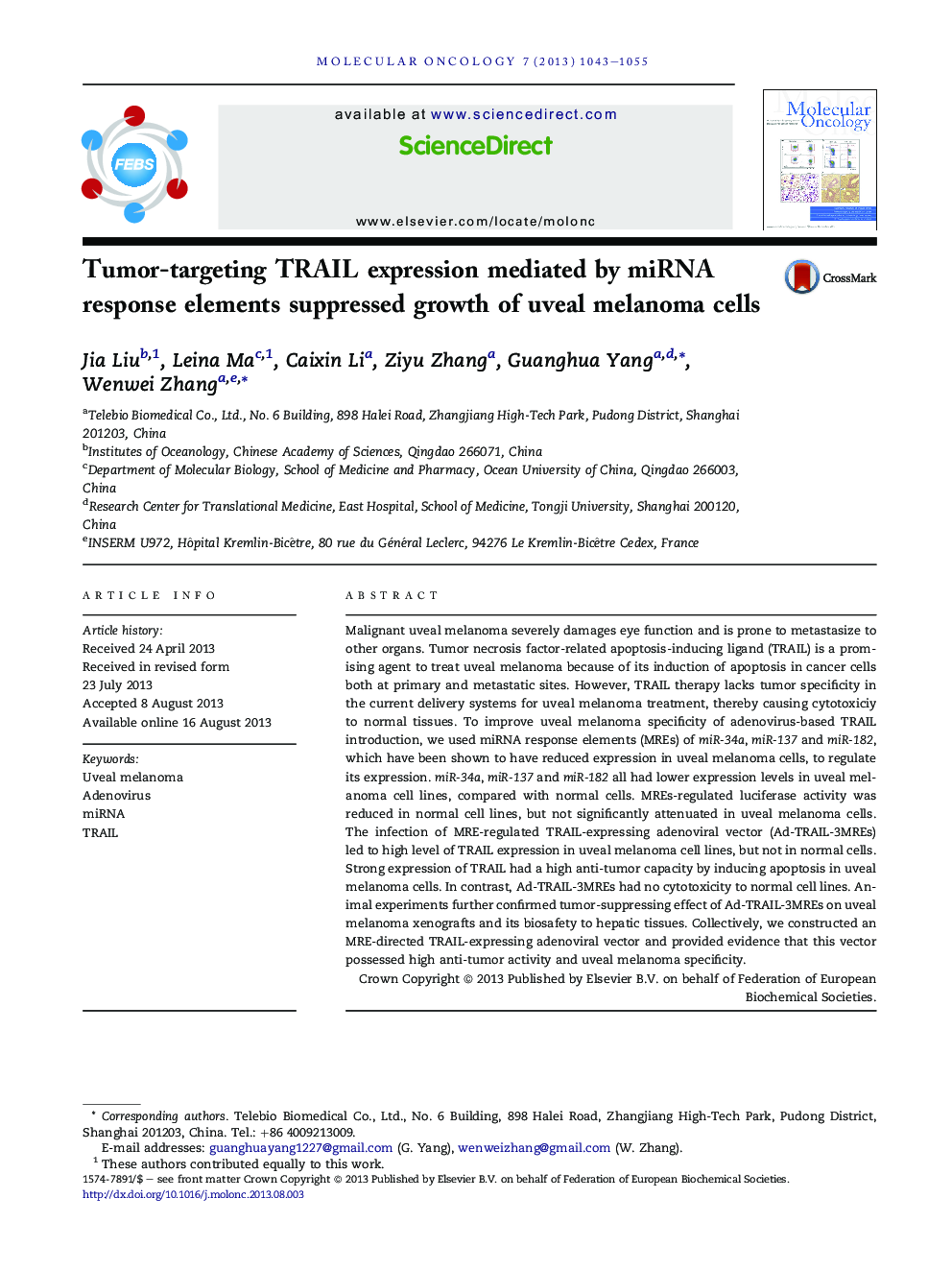| Article ID | Journal | Published Year | Pages | File Type |
|---|---|---|---|---|
| 2145616 | Molecular Oncology | 2013 | 13 Pages |
•MREs of miR-34a, miR-137 and miR-182 restrict TRAIL expression in uveal melanoma.•Ad-TRAIL-3MREs selectively induces apoptosis and reduce growth of uveal melanoma.•Ad-TRAIL-3MREs possesses no cytotoxicity to normal cells in vitro and in vivo.
Malignant uveal melanoma severely damages eye function and is prone to metastasize to other organs. Tumor necrosis factor-related apoptosis-inducing ligand (TRAIL) is a promising agent to treat uveal melanoma because of its induction of apoptosis in cancer cells both at primary and metastatic sites. However, TRAIL therapy lacks tumor specificity in the current delivery systems for uveal melanoma treatment, thereby causing cytotoxiciy to normal tissues. To improve uveal melanoma specificity of adenovirus-based TRAIL introduction, we used miRNA response elements (MREs) of miR-34a, miR-137 and miR-182, which have been shown to have reduced expression in uveal melanoma cells, to regulate its expression. miR-34a, miR-137 and miR-182 all had lower expression levels in uveal melanoma cell lines, compared with normal cells. MREs-regulated luciferase activity was reduced in normal cell lines, but not significantly attenuated in uveal melanoma cells. The infection of MRE-regulated TRAIL-expressing adenoviral vector (Ad-TRAIL-3MREs) led to high level of TRAIL expression in uveal melanoma cell lines, but not in normal cells. Strong expression of TRAIL had a high anti-tumor capacity by inducing apoptosis in uveal melanoma cells. In contrast, Ad-TRAIL-3MREs had no cytotoxicity to normal cell lines. Animal experiments further confirmed tumor-suppressing effect of Ad-TRAIL-3MREs on uveal melanoma xenografts and its biosafety to hepatic tissues. Collectively, we constructed an MRE-directed TRAIL-expressing adenoviral vector and provided evidence that this vector possessed high anti-tumor activity and uveal melanoma specificity.
